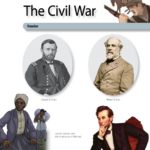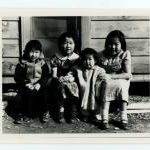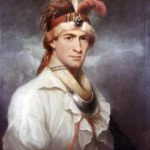The purpose of this lesson to assist student understanding of why the American Constitution places ultimate authority of the military in the hands of civilians rather than military leaders. Students should appreciate the historical uniqueness of the American military as an extension of constitutional principles in which the people always have the last word.
Deliberation Materials: Military Intervention
Should the U.S. military intervene to protect people in other countries from state-sponsored mass killing? This activity includes a deliberation reading and glossary, as well as accompanying handouts to give students additional information on the topic and to guide them through the deliberation process from planning to reflection.
You Can’t Say That: Right to Know vs. Security Risk

Explain to students that tensions between the press and the military have always existed, as the goals of each group are often in conflict. Reporters want information to flow freely, while the military guards national security interests. The debate over how to balance these competing interests continues today.
Ethics in America
Build moral reasoning by examining ethical dilemmas in this video series, which uses the Socratic method to build analytical skills and examine ethical questions. The programs aim to sharpen moral reasoning without favoring a particular position by exploring ethical dilemmas in legal, political, medical, corporate, and military arenas. Panelists include Antonin Scalia, Faye Wattleton, and Peter Jennings.
Constitutional Index – Rules for the Military Clause
The Constitutional Index breaks down the U.S. Constitution by Section, Amendment, and Clause and contains broader topics and themes. These are used to cross-reference Library resources in an effort to annotate constitutional history.
Constitutional Index – Military Installations Clause
The Constitutional Index breaks down the U.S. Constitution by Section, Amendment, and Clause and contains broader topics and themes. These are used to cross-reference Library resources in an effort to annotate constitutional history.
Constitutional Index – Amendment 5 Military Cases Clause
The Constitutional Index breaks down the U.S. Constitution by Section, Amendment, and Clause and contains broader topics and themes. These are used to cross-reference Library resources in an effort to annotate constitutional history.
The Civil War (CKHG Unit)

This unit explores the political, historical and cultural causes and consequences before, during and after the Civil War, one of our nation’s greatest crises. Across 24 lessons, students engage with the material through primary sources and consider the influence of abolitionists and other intellectual as well as military and political figures.
This unit includes 24 lessons that are about 45 minutes each.
Japanese American Internment

On February 19, 1942, President Franklin D. Roosevelt issued Executive Order 9066, which gave the military broad powers to ban any citizen from a coastal area stretching from Washington state to California and extending inland into southern Arizona. For the next four years, more than 120,000 persons of Japanese ancestry—77,000 of them American citizens—were removed from this area and incarcerated indefinitely without criminal charges or trial. Forty-six years and eight presidents later, on August 10, 1988, President Ronald Reagan signed the Civil Liberties Act of 1988 into law.
Loyalists in the American Revolution

This short video clarifies the role played by Loyalists throughout the American Revolution. Never more than 1/5 of the population, Loyalists’ political and military significance varied both chronologically and geographically. Professor Jack Rakove highlights the efforts of British forces in the Southern colonies to enlist Loyalists in hopes of “pacifying” the countryside, but concludes that there were too few Loyalists for this strategy to succeed.